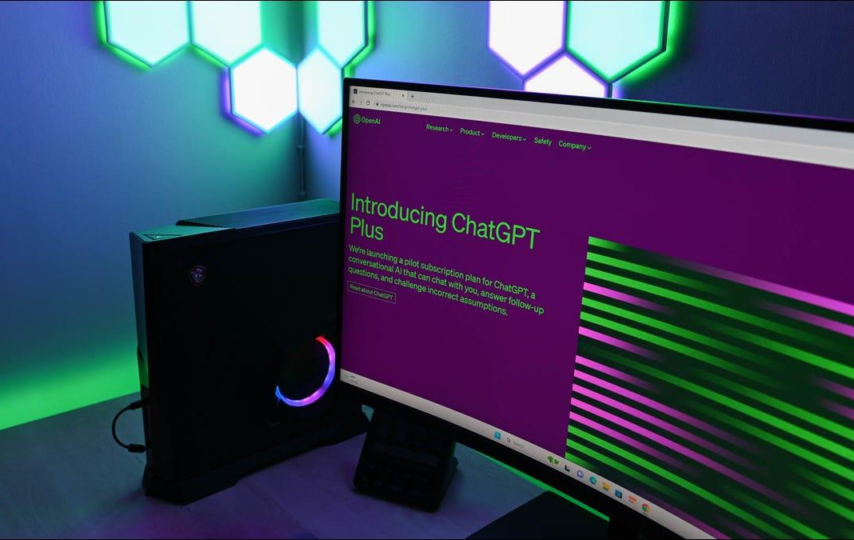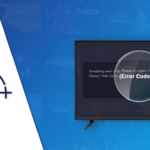Many students and educators often wonder “can turnitin detect Chat GPT?” Turnitin has made significant advancements in its ability to identify AI-generated content, including that produced by Chat GPT. Additionally, it has an impressive accuracy rate of 98%. This capability plays a crucial role in maintaining academic integrity and fostering original work. This is especially in an era where AI technologies are rapidly evolving.
Turnitin, a widely used plagiarism-detection tool, has been proactive in addressing concerns within the education community regarding the potential impact of AI writing tools like Chat GPT on critical thinking. Recognizing the need to adapt to these advancements, Turnitin has developed mechanisms to distinguish between content created by humans and that generated by artificial intelligence. This development ensures that the platform remains effective in promoting academic honesty and preserving the value of original work.
Can Turnitin identify content generated by Chat GPT?
Turnitin incorporates advanced technology capable of detecting AI-assisted writing and content generated by tools like ChatGPT. This plagiarism checker thoroughly analyzes submitted work and verifies its originality. Universities and educators now have a convenient means to assess students’ work and ensure the authenticity of their content. Turnitin’s ChatGPT Screening feature allows for the comprehensive examination of all text produced through an AI chatbot.
The innovative plagiarism checker offered by Turnitin possesses the capability to evaluate the originality of content from its inception. In addition to detecting AI-generated writing, Turnitin generates a comprehensive report that identifies instances of plagiarism. Educational institutions, such as schools and universities, will greatly benefit from Turnitin. That is particularly true in the context of students relying on AI chatbots to complete their assignments and college essays. This reliance on AI undermines the authenticity, originality, and true purpose of these academic tasks.
Interesting Facts: Can Turnitin Detect Chat GPT
Turnitin’s detection capabilities extend beyond ChatGPT alone. Although they do not explicitly mention the specific tools, their latest service upgrades enable the detection of other AI text-generating tools as well. To aid in identification, Turnitin offers a Similarity Index and an originality report. Educators and lecturers can leverage this AI-writing detector to thoroughly examine students’ work.
The recent launch of ChatGPT and Google Bard has amazed us all. Turnitin made a significant move on April 4, 2023, by incorporating AI writing detection capabilities across various services, including Turnitin Feedback Studio (TFS), TFS with Originality, Turnitin Originality, Turnitin Similarity, Simcheck, Originality Check, and Originality Check+. With this enhancement, the Turnitin AI detector now caters to a vast user base, supporting over 2.1 million educators and more than 10,700 institutions. It has the potential to benefit more than 62 million students worldwide.
How Does Turnitin Work?
Lecturers and educators have the option to submit Turnitin assignments either through their university’s online learning platform or by directly uploading them on the official Turnitin website. Upon submission, Turnitin conducts a thorough examination and analysis of the entire submitted work. This powerful plagiarism detection tool meticulously compares each sentence with various sources to determine the originality of the content.
The submitted work is accessible to the staff involved, providing them with the opportunity to review and evaluate the assignments. Turnitin also enables lecturers to create online assignments, incorporating comments and grades. Once all the papers have been checked and assessed, the respective students receive their feedback and grades.
Turnitin offers two important features for submitted work:
Similarity Index: Turnitin’s software compares the submitted content with extensive databases, which include academic, internet, and student paper content. It identifies similarities and presents them as a percentage. This percentage represents the amount of matched or potentially plagiarized content detected by Turnitin with other sources.
The similarity index accurately identifies matching content within the submitted paper. Students and educators can review these matching sentences or phrases to identify areas that require modification to address any issues related to similarity. This process helps in avoiding further instances of similarity.
Originality Report: It offers a comprehensive and detailed overview of matched content, including the sources identified by Turnitin. These sources encompass a wide range of materials such as articles, blogs, websites, books, and previously submitted documents. With the availability of Turnitin’s software, universities and professors can effortlessly identify AI-generated content within minutes. This advancement encourages students to focus on creating original assignments and essays, instead of relying on chatbots to generate content and provide answers to their queries.
Turnitin ChatGPT Screening
The introduction of AI chatbots like ChatGPT has significantly simplified the process of content generation for students, allowing them to quickly obtain essays, articles, blogs, and more. By simply making a request, ChatGPT can generate content in a manner that resembles human writing. As a result, numerous students have started relying on ChatGPT for their assignments, homework, and college essays. However, this widespread usage has given rise to several consequential problems, including plagiarism and the submission of inauthentic content. These issues undermine the fundamental purpose of assigning homework and tasks in universities and colleges.
The remarkable capability of AI chatbots to generate content and responses that resemble human writing has posed a challenge for educational institutions in differentiating between AI-written and human-written content. To address this concern, the introduction of AI content detectors, such as Turnitin, has been instrumental. Turnitin’s ChatGPT Screening feature identifies and evaluates the originality of the provided content. It comprehensively analyzes and detects content from its very inception, assisting in the distinction between AI-generated and human-generated content.
Conclusion: Can Turnitin Detect Chat GPT
AI detection tools like Turnitin play a crucial role in preventing students from utilizing AI chatbots to complete their assignments, essays, and homework. It is unethical and can be deemed as outright plagiarism to rely on AI chatbots like ChatGPT to entirely produce a paper on behalf of the student. Students need to recognize that AI chatbots cannot serve as substitutes for completing academic work, which is intended to foster skill development, knowledge acquisition, and critical thinking abilities.
FAQ: Can Turnitin Detect Chat GPT
Q1: What methods can instructors employ to identify the use of ChatGPT?
Instructors can identify the utilization of ChatGPT in students’ work through various means. Firstly, they can analyze the style, tone, and language employed in the writing. AI chatbots like ChatGPT often exhibit distinctive stylistic patterns that differentiate them from human writing. Moreover, certain words or phrases commonly used by chatbots might be unusual for students, serving as indicators. Instructors can also engage students in discussions to explain the concepts or ideas presented in their assignments using their own words.
Q2: Are teachers able to discern whether ChatGPT has been utilized?
Teachers can utilize AI-detecting tools to differentiate between human-written and AI-generated content in their submissions. ChatGPT incorporates a powerful AI engine, combining the GPT-3.5 language model with tools like Turnitin. This enables a thorough comparison of your submitted content with extensive databases comprising articles, blogs, and other sources.
Q3: What are the ethical considerations associated with the use of ChatGPT?
While employing ChatGPT for school assignments, homework, and papers may alleviate students’ workload, it is crucial to acknowledge the ethical concerns surrounding its use. AI chatbots completing students’ assigned tasks hinder their personal growth, knowledge acquisition, and skill development. Unfortunately, there is a growing trend among students to rely on ChatGPT for tasks like university essays and papers. Engaging in such practices can be deemed unethical, as it amounts to cheating and promotes shortcuts in writing, potentially leading to the dissemination of inaccurate information.








